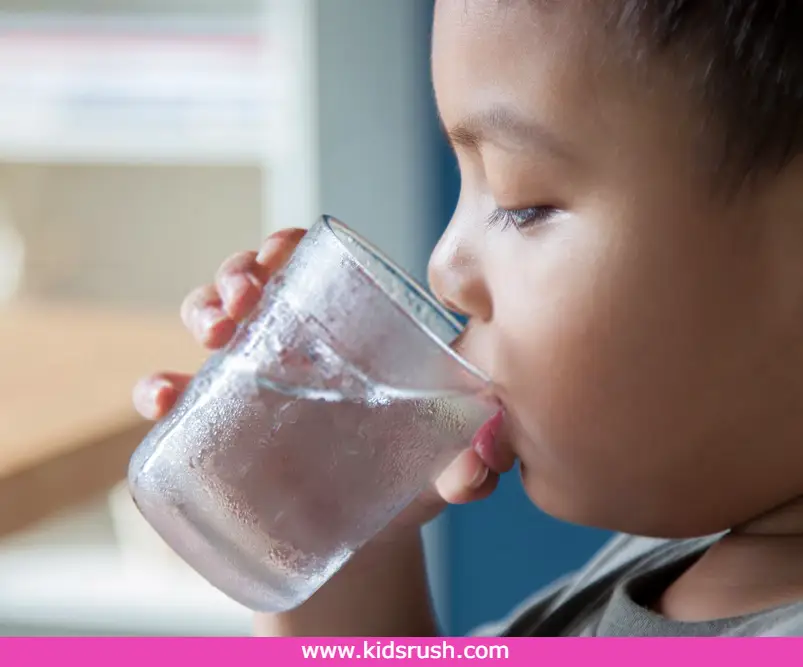It has also been called a “vital nutrient” because of its importance to human survival. The water needs of babies are just like those of adults, though they are much smaller. A high amount of water can upset an animal’s electrolyte balance if they are given more than their system is capable of handling. This post discusses the symptoms, causes, effects, and ways to prevent water intoxication in babies.
In the case of electrolyte imbalances, physiological changes such as hypothermia and seizures can occur. Water intoxication occurs in this state. Intoxication caused by drinking too much water is rare in babies but can occur if the formula is diluted in excessive amounts with water.
What is the recommended amount of water for babies?
The water should not be consumed by babies under six months old. It is breast milk and formula that meet their hydration requirements at this age. Feeding them water increases the risk of them becoming intoxicated by water. You can offer your baby up to one cup (4 to 8 oz. per day) of water each day if needed between the ages of six and 12 months.
To meet the infant’s hydration requirements, the recommended water quantity, breastfeeding, or formula-feeding should be utilized. It may not be a problem to drink additional water during hot weather and illness. Nonetheless, you should avoid making this a habit.
Water Intoxication In Babies: Symptoms
Hyponatremia occurs when sodium levels in the body fall abnormally low due to excess water in the body. Many organs, including the brain, can be affected by it.
Hyponatremia in babies is characterized by several signs and symptoms:
- Unusually clear urine
- Lethargy and dizziness
- The unhappy baby shows signs of irritability and fussiness
- Hypothermia (low body temperature) below 97 degrees Fahrenheit (36 degrees Celsius)
- Vomiting and nausea
- Ankle, leg, and face swelling
- Breathing irregularities
The intoxication of water can result in seizures and coma in extreme cases. Consult a pediatrician if any of these symptoms appear in your child. [1] [2]
You May Also Like
- Can Children Have Ginger? – Discover It Here
- Chigger Bites In Children: Prevention and Treatment
- West Nile Virus in Children: Causes, Symptoms, and Treatment
- Osteomyelitis in Children: Causes, Symptoms, and Treatment
- Gastritis In Children: Causes, Symptoms, And Treatment
Water Intoxication In Babies: Causes
Baby’s don’t drink water voluntarily. When water is fed excessively to babies by their caregivers, water intoxication occurs.
Providing diluted juices and water
A baby up to six months of age doesn’t need to be given water or diluted juices. Having exclusively breastfed or formula-fed infants provide them with optimal hydration. Many parents, however, provide babies with diluted juices and water to keep them hydrated and nourish them. Because the baby’s kidneys are not mature enough to process water, it is not suitable for them.
Excessive dilution of the formulation
As a result, there are differences in the water requirement for different brands of formula. According to experts, parents should correctly measure the mixture according to the instructions on the package. This is crucial since formula can get too thick if less water is used than recommended, which can cause constipation in babies. While high water intake does not harm the formula, it can affect electrolytes and nutrition intake causing water intoxication in babies.
Babies between the ages of 12 and 24 months should stop using bottles and start feeding on a cup. In this way, babies are gulping excess water when left unattended when drinking from cups.
Water Intoxication Treatment for Babies
Babies who have become intoxicated by water can’t be treated at home. As such, you should contact a doctor if your baby shows signs of excessive water consumption. An electrolyte imbalance can lead to severe symptoms, so the doctor will devise a treatment plan to eliminate this problem.
If the baby’s water intake is restricted and excess water is let out, this condition can be resolved. An intravenous saline drip may be recommended in severe cases, as well as diuretics or diuretics used in conjunction with diuretics.
Tips For Preventing Water Intoxication in Babies
You can ensure your baby consumes water appropriately and in the right amounts by following these simple tips.
- You should not give water to a baby younger than six months. For babies older than six months, an adequate amount of water is four to eight ounces (half a cup to one cup daily).
- If you are unsure whether your baby is dehydrated or whether you should provide water, consult a pediatrician. Babies do not necessarily need water in hot environments, and frequent breastfeeding is sufficient.
- Formulas should never be overdiluted. Mixing ratios should be followed according to the label.
- While they are drinking water from their cup, or while bathing, never leave a baby unattended. An unattended baby may accidentally consume too much water.
- Babies can suffer from water intoxication, but the effects can be adverse, including seizures. By ensuring that they are feeding their baby plenty of water and mixing the formula according to the recommended dilution ratio, they can avoid it. Keeping the baby’s water intake on a tight leash can help prevent water intoxication.
References
[1]. St. Louis Children’s Hospital; Water Intoxication in Infants
[2]. CDC; Hyponatremic Seizures Among Infants Fed with Commercial Bottled Drinking Water — Wisconsin, 1993

